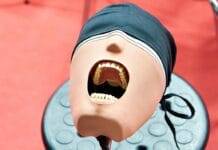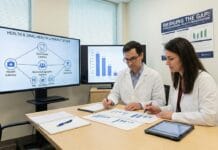Dental hygiene schools equip future clinicians with the knowledge to navigate through the daily trials of patient treatment. We are taught anatomical structures, clinical skills, radiographic interpretation, pro-fluoride arguments, and community health topics among many other lessons. Long clinic days and difficult patient cases mold us into more efficient and experienced hygienists.
While hygiene school is the perfect cocoon where many of us form our wings, are we really prepared to fly once we graduate and pass our boards? For some last semester hygiene students, the “real world” may seem like a daunting place. For others, the grass is definitely greener on the other side of graduation. Whichever type of student you are, here are a few tips for navigating through your first year after hygiene school.
Be a Lifelong Learner
I had several instructors in school who pushed the trait of being a lifelong learner. It seemed like such a strange goal to aim for at the time. But it makes much more sense to me now that I have been out of school and working for almost a year now. As ashamed as I am to admit it, I naively thought that learning and studying would basically end after I walked the stage after the graduation ceremony.
I planned only to take the required amount of continuing education classes to maintain my license, putting in only the required effort. However, I’m not just talking about loading up on CE courses.
A lifelong learner benefits from the knowledge and skills, for example, possessed by the more experienced hygienists in your office. If a patient presents with a rare case, ask a veteran hygienist how to handle the treatment. Chances are, they have more hands-on advice than you can find in a textbook. If you don’t have much experience with a piece of equipment in the office, ask for a one-on-one tutorial.
As intimidating as it may be to admit you don’t know the answer, there is no shame in showing your eagerness to learn. Gaining education doesn’t end outside of the classroom, and it will make life so much easier if you aim to learn something new whenever the opportunity presents itself.
Be Patient with Your Patients
If I had a dollar for every time a patient asks me about their usual hygienist, I could probably retire at the age of 23. Well, probably not, but you get the point that this question arises multiple times a day. When you’re the newbie in the office, and your schedule is filled with established patients who are used to having the same hygienist, you might have some big shoes to fill.
You’ll hear a lot of things such as “She never did that,” “How long have you done this?” and “Are you just filling in?”
It can be frustrating when you feel like you’ve already lost your patient’s trust before introducing yourself. However, before you let patients’ comments get too deep under your skin, remember that this is a new experience for the patient too.
Many patients present with dental anxiety, and a huge part of that is the uncertainty of how the appointment will go. If the usual clinician isn’t the one performing the service, many patients become uneasy. Compare it to driving a car. When you’re 15 and just getting your learner’s permit, you become very familiar with the car you learned to drive in. You know exactly how the car feels when you press the accelerator a certain way, and you know that it always takes a second before jumping into gear after sitting out in the cold.
By the time you get your driver’s license at age 16, you feel like a professional driver… until you get behind the wheel of an unfamiliar car. Suddenly, the steering wheel feels like it’s at a completely different angle, you don’t know where the turn signal is, and the brakes are definitely much smoother than what you’re used to. While you know the action of driving, the uncertainty of driving a new vehicle can be scary.
This is exactly how your patient feels about having a new hygienist. They know the typical routine of a hygiene appointment. But the specifics of your treatment approach are foreign. Explaining what you’re doing, answering any questions that arise, and going slow can help alleviate the nervousness and tension. Who knows? You might even see the patient open up to you by the end of the appointment just by showing a little patience and understanding.
Be a Team Player
I have a friend who temped at an office, and one of her coworkers made the statement, “I clean teeth, not instruments.” She never scrubbed instruments or wrapped cassettes or dared to run the autoclave. As a result, she wasn’t very popular around the office. Unfortunately, hygienists have a bad reputation for being prima donnas.
Don’t adopt the attitude that you’re too good to help out. While you shouldn’t fall behind on your duties because you’re picking up other tasks, never hesitate to offer your services to a struggling coworker when you have a free moment. Even though your day might be running smoothly, there will always be a time that you need a little extra help setting up your op for the next patient or sterilizing your instruments. If you’re always willing to lend a helping hand, you’ll most likely have the favor returned to you.
Everybody’s first year after hygiene school is different and often dependent on the work environment. While being a lifelong learner, a patient clinician, and a team player can seem difficult some days, I have found that aiming for these three goals has positively affected my attitude toward this first year. I’m nowhere near being a perfect dental hygienist, and I’m sure my list of survival tips will grow with each year in the field, but I’m thankful for my mentors and the experiences that have helped me make it through year one.
Before you leave, check out the Today’s RDH self-study CE courses. All courses are peer-reviewed and non-sponsored to focus solely on high-quality education. Click here now.












